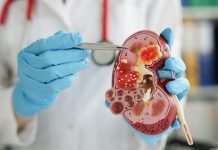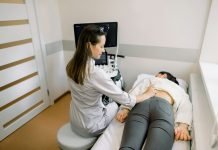
Dementia is a scary word for many. It is a disease that affects the brain. People with dementia often forget things. They can also find it hard to speak or write.
Sometimes, they may even act differently. There are many types of dementia. The type we are going to talk about is called frontotemporal dementia.
This is a kind of dementia that starts early, usually between 40 and 65 years of age. It mainly affects two parts of the brain – the frontal and temporal lobes.
Why Frontotemporal Dementia Happens
Frontotemporal dementia can happen because of a problem in the person’s genes. Some people have a mistake, or ‘mutation’, in their genes that stop an important protein called progranulin from being made.
This protein helps the brain to work properly. When the brain doesn’t have enough progranulin, it can lead to frontotemporal dementia.
The Problem with Dementia Treatment Today
The big issue with dementia, including frontotemporal dementia, is that no effective treatments are available right now.
This is a big problem for patients and their families. But researchers are always working hard to find new treatments. A recent study from the University of Kentucky has brought some hope.
The researchers discovered that some common antibiotics might help treat frontotemporal dementia.
The Power of Antibiotics
Antibiotics are medicines we often take when we are sick with infections. There are many types of antibiotics.
In this study, the scientists looked at a type called aminoglycosides. Two specific antibiotics in this group caught their attention – Gentamicin and G418.
How Antibiotics Could Help
The scientists carried out tests on brain cells that had a genetic mistake causing frontotemporal dementia.
They found something exciting when they added these antibiotics to the cells. The cells started making the progranulin protein again, even with the genetic mistake.
The antibiotics seemed to trick the cells into ignoring the mistake. This meant that the cells could make the helpful progranulin protein.
In the tests, the level of this protein went up to about half or a little more of what it should generally be.
What Happens Next?
These results are just the first step. The researchers are planning to do more tests. They want to see if the antibiotics have the same effect in animals with the genetic mistake.
If they do, the next step will be to see if they can make new medicines based on these antibiotics. These new medicines would need to be safe and work well.
One of the antibiotics, Gentamicin, is already used in humans, but it can have side effects. The researchers hope to make new medicines that don’t have these side effects.
Why This Matters
This research is important because it gives hope for new treatments for frontotemporal dementia. Finding effective treatments for dementia is a top priority in medical research.
It can potentially improve the lives of people with dementia and their families. So, let’s hope this promising research leads to effective treatments soon.
Stay Tuned
Remember, research takes time. It will be a while before we know if these antibiotics can really help people with frontotemporal dementia.
But we’ll keep you updated on any new developments. For now, it’s good to know that scientists are making progress in understanding and hopefully treating this challenging disease.
If you care about cancer, please read studies about dry shampoo and cancer risk, and vitamin D supplements strongly reduce cancer death.
For more information about health, please see recent studies about how drinking milk affects the risks of heart disease and cancer and results showing higher intake of dairy foods linked to higher prostate cancer risk.
Copyright © 2023 Knowridge Science Report. All rights reserved.




